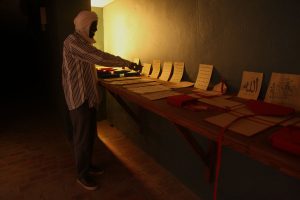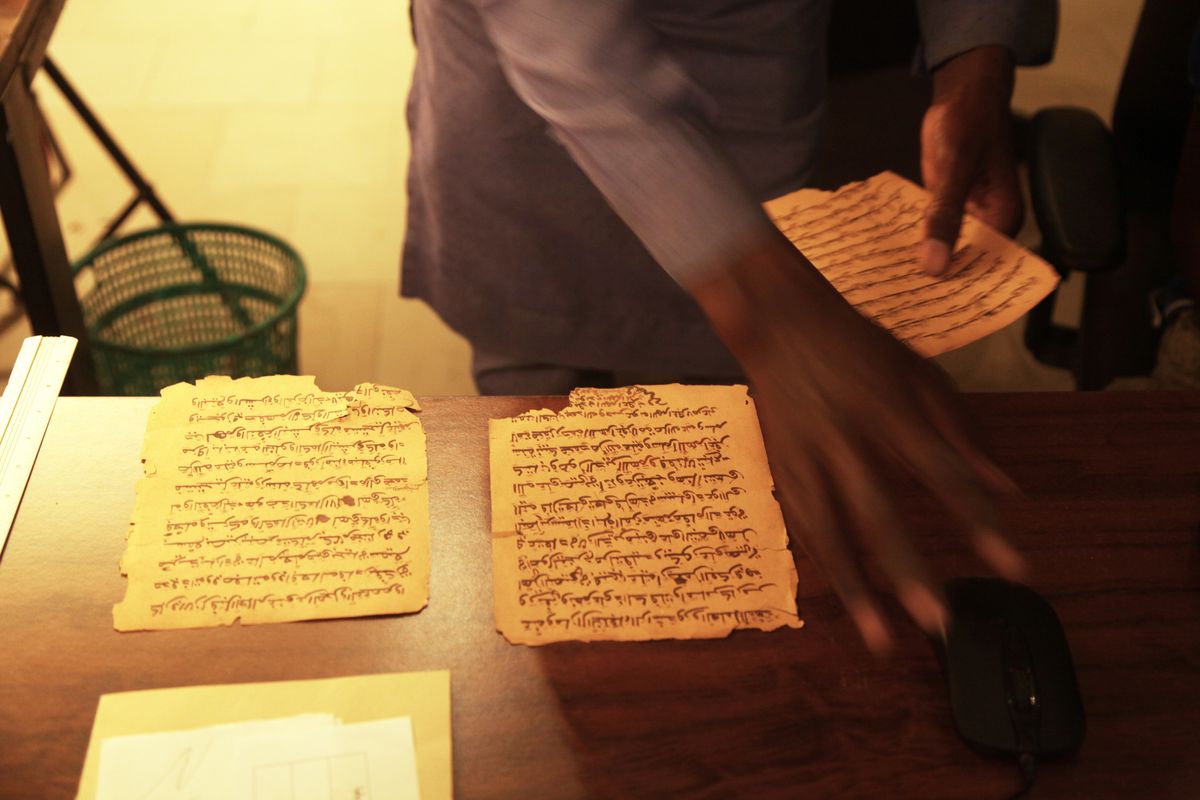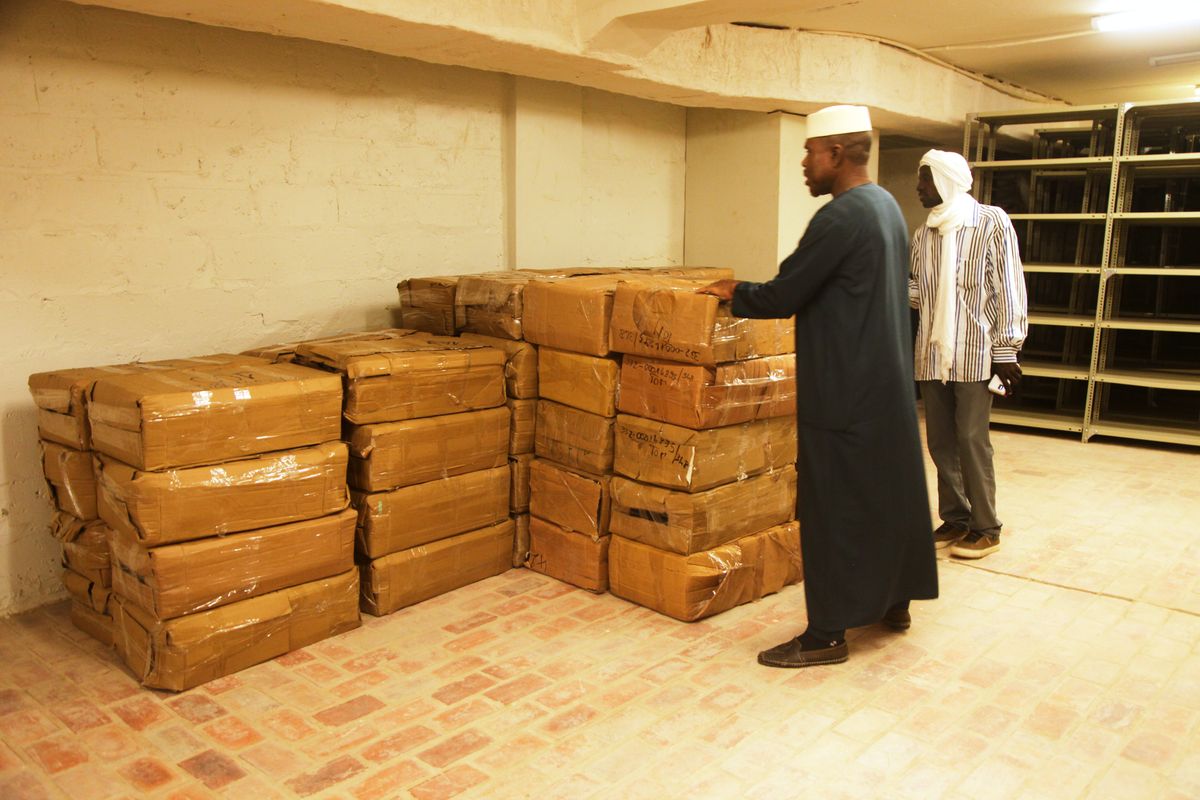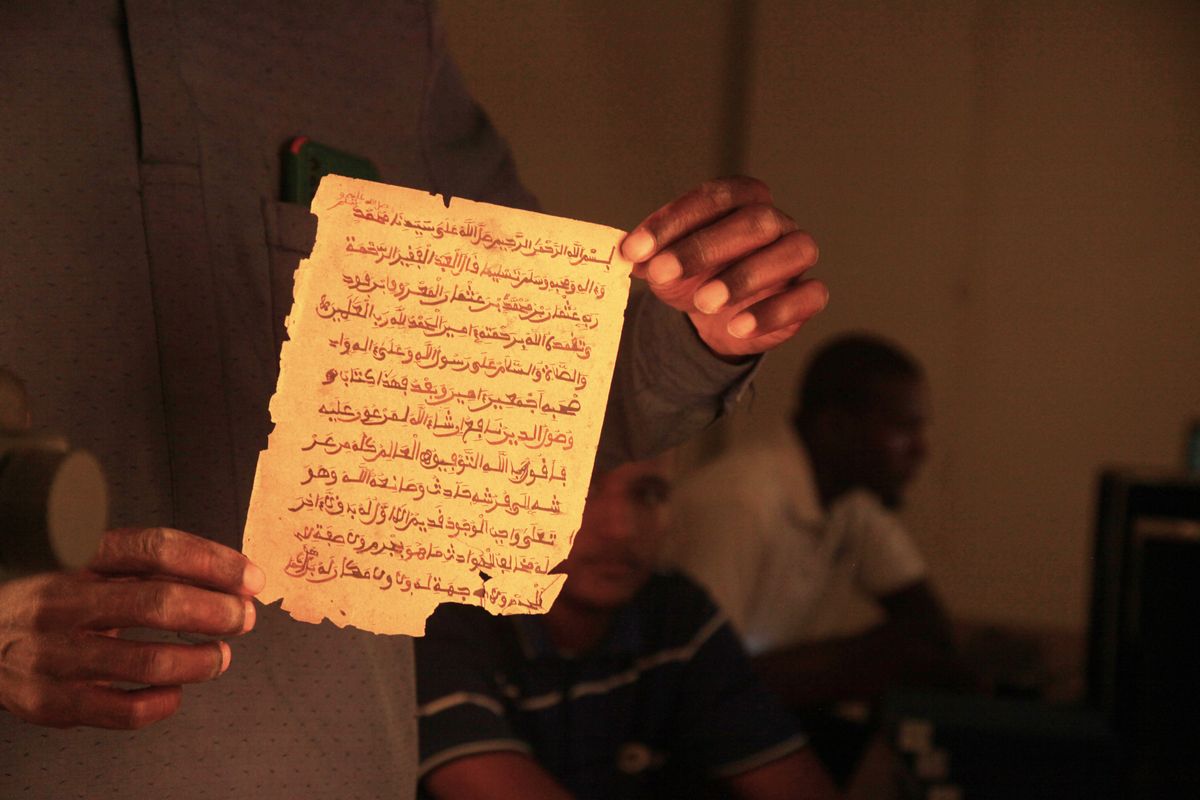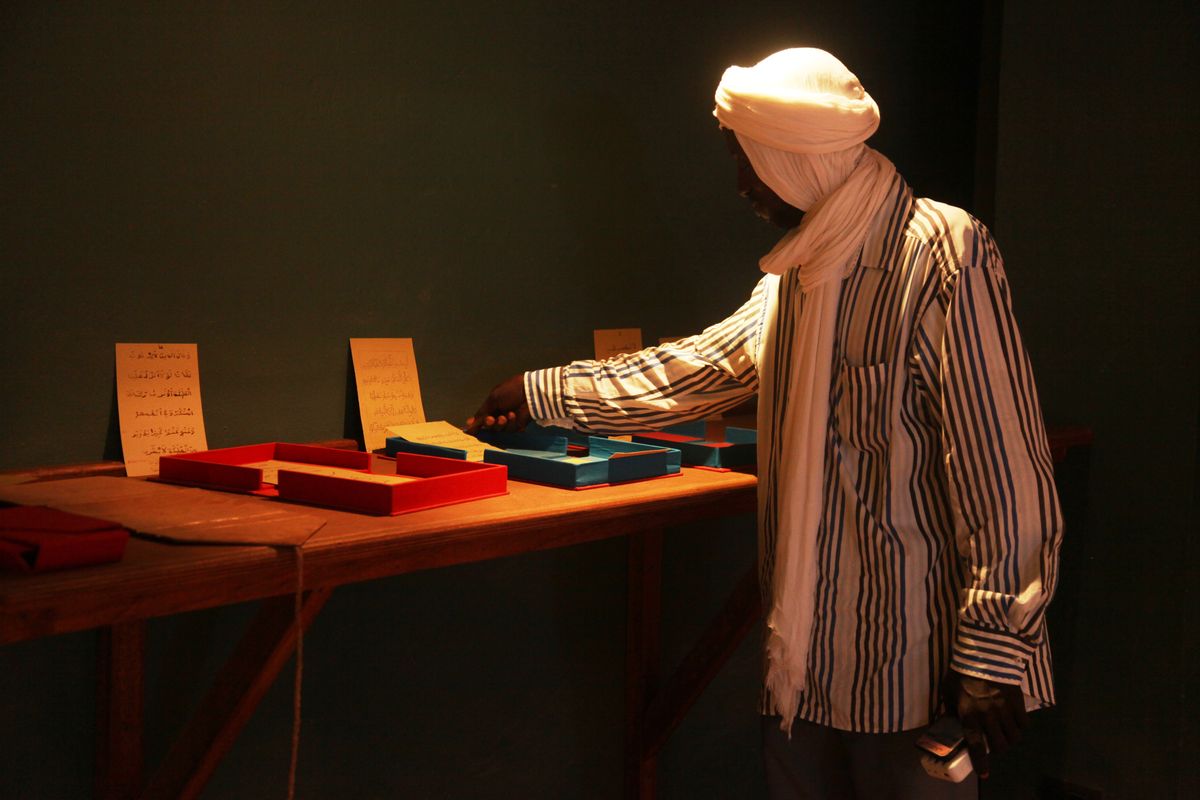TIMBUKTU, Mali (AP) — Thirteen years ago, Abdoulaye Cissé risked his life to smuggle tens of thousands of fragile manuscripts out of Timbuktu as al-Qaida -linked extremists swept into the desert town.
At night, he loaded crates of manuscripts from the Ahmed Baba Institute of Higher Islamic Studies and Research onto donkey carts, aware that their pages carried evidence of his people’s glorious past. They were taken to the river, where wooden boats and then buses took them to Mali’s capital, Bamako — a 1,200-kilometer (750-mile) journey.
“It was dark, but we knew the route by heart,” said Cissé, the institute’s general secretary.
Moving the manuscripts took a month. The institute’s staff knew they risked their lives.
The 28,000 manuscripts returned safely to Timbuktu in August after a request from local leaders and civil society. It reflected both the city’s pride in cultural preservation and concerns about the potentially damaging humidity in Bamako. Mali’s government has portrayed it as a victory.
But al-Qaida remains a threat. Its fighters attacked Timbuktu as recently as June, and affiliated fighters with the JNIM group have imposed a fuel blockade on landlocked Mali, threatening to bring down the military regime.
A center of global learning
Beyond the institute, which is owned by the government, Timbuktu is home to private libraries holding an estimated 377,000 manuscripts in total. All were smuggled to the capital, where they remain.
“What we find in these documents does not exist anywhere else in the world,” said Mohamed Diagayeté, director of the institute, who specializes in old manuscripts.
The trove contradicts assumptions that African history has been primarily oral. The manuscripts are an archive of dealings among West African empires and tribes, with histories dating back centuries.
A world comes to life on their pages. Letters between scholars and emirs debate whether tobacco was sin or solace, and outline demands by officials to shrink women’s dowries so poor men might marry.
Scribbled notes in the margins detail events that shaped history, like earthquakes that shook the region in the 15th century.
Timbuktu was once a center of Islamic learning, with scholars also coming to study mathematics, science, astrology and governance.
The manuscripts offer evidence that Islam in the region was long marked by tolerance and respect. One manuscript in a private library records a local decree warning men not to impose themselves on women, and granting women the right to seek justice if they do.
The brutality of al-Qaida’s arrival in 2012 was a shock. The militants destroyed more than 4,000 manuscripts, some dating back to the 13th century, according to the findings of a United Nations expert mission. They also destroyed the mausoleums of Timbuktu, which are listed as UNESCO World Heritage Sites, and the city’s “sacred gate.”
New protections
Al-Qaida’s rampage was a wake-up call for protecting Timbuktu’s treasures.
Before the manuscripts were smuggled out of the city, only 20% of the institute’s manuscripts had been digitized, Cissé said. Now nearly all are digitized, and the archives are backed up on servers based elsewhere.
“Even if one server is damaged, we can still recover these manuscripts,” he said.
Archivists and librarians say challenges remain.
The manuscripts are still stored in aging mud-brick libraries, though staffers of the institute say their holdings are now in “a secure place.” They plan to install surveillance cameras inside.
Timbuktu’s history-loving residents try to balance protection with accessibility.
“As long as these manuscripts remain in trunks, they remain dead because people cannot enjoy them,” said Sane Chirfi Alpha, a founding member of a local nonprofit, SAVAMA-DCI, for their preservation.
For students like 24-year-old Baylaly Mahamane, the manuscripts offer fresh insights from traditional practices. One text describes doctors crushing white wormwood leaves to soothe the stomach, blending millet with mutton to stop vomiting, and packing swollen feet with clay and henna.
“I want to study the Timbuktu manuscripts on herbal medicine so that I can help doctors in Timbuktu hospitals treat patients who cannot obtain medication at home,” Mahamane said.
___
For more on Africa and development: https://apnews.com/hub/africa-pulse
The Associated Press receives financial support for global health and development coverage in Africa from the Gates Foundation. The AP is solely responsible for all content. Find AP’s standards for working with philanthropies, a list of supporters and funded coverage areas at AP.org.
By BABA AHMED
Associated Press

